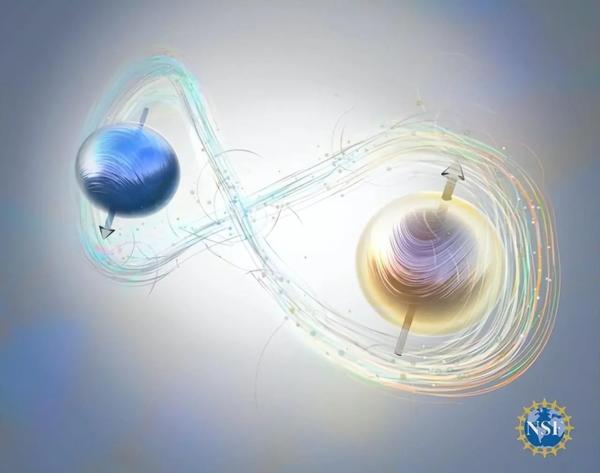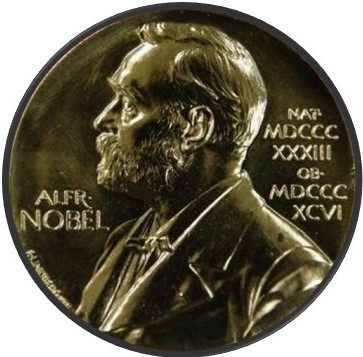The 2022 Nobel Prize in Physics was announced

[United Nations WIBDC] October 3, New York, USA, According to the official website of the Nobel Prize, in Stockholm, the capital of Sweden, the Royal Swedish Academy of Sciences announced that the 2022 Nobel Prize in Physics would be awarded to Alain Aspect, John F. Clauser and Anton Zeilinger, in recognition of their contributions to the scientific research of quantum information.

Image source: official website of Nobel Prize.

In the history of more than 100 years, the Nobel Prize in Physics has included many outstanding winners. It is thanks to these scientists' unremitting research and heavy discoveries that the Nobel Prize in Physics can be so "shining". The winners of the Nobel Prize in Physics in recent ten years are as follows:
Winners will receive a certificate, gold medal and bonus. The prize of each Nobel Prize in 2022 is SEK 10 million, which is about 6.5 million yuan at the current exchange rate.
The Nobel Prize in Physics has been awarded 115 times before.
During the First World War (1914-1918) and the Second World War (1939-1945), no Nobel Prize in Physics was awarded in 1916, 1931, 1934, 1940, 1941 and 1942.
From 1901 to 2021, John Badin is the only one who has won the Nobel Prize in Physics twice. This means that 218 people have won the Nobel Prize in Physics before 2022.
Attached is the list of Nobel laureates in physics in the previous decade
Because of their pioneering contributions to our understanding of complex physical systems, Japanese American scientist Syukuro Manabe and German scientist Klaus Hasselmann shared the 2021 Nobel Prize in Physics with Italian scientist Giorgio Parisi.
In 2020, the Nobel Prize in Physics was awarded to three winners because "they discovered one of the most bizarre phenomena in the universe - black holes". British scientist Roger Penrose won the prize for proving that black holes are the direct result of Einstein's general theory of relativity; Reinhard Genzel, a German scientist, and Andrea Gates, an American scientist, won the prize for the discovery of super massive objects in the center of the Milky Way Galaxy.
In 2019, the Nobel Prize in Physics was awarded to scientists in two fields. Among them, the reason why Canadian American scientist James Peebles won the prize was his theoretical discovery in the field of physical cosmology; However, Michel Mayor, a Swiss scientist, and Didier Equeloz, a Swiss scientist, won the prize for "discovering exoplanets orbiting other sun like stars".
In 2018, the Nobel Prize in Physics was awarded to Arthur Ashkin, an American scientist, Gerald Mulu, a French scientist, and Donna Strickland, a Canadian scientist, in recognition of their breakthrough contributions in the field of laser physics.
In 2017, Reinavis, Barry Barres and Gibson won awards for their research on gravitational wave detection. In 2016, British scientists David Solis, Duncan Haldane and Michael Costlitz won the award for theoretically discovering the topological phase transition and topological phase of matter.
In 2015, Japanese scientist Takashi Kajida and Canadian scientist Arthur MacDonald jointly won the Nobel Prize in Physics. They won the prize for discovering neutrino oscillation and proving that neutrinos have mass.
In 2014, the winners of the Nobel Prize in Physics were Yong Akasaki, a Japanese scientist, Xiuji Nakamura, a Japanese American scientist, and Hiroshi Amano, a Japanese scientist. They have developed blue light-emitting diodes (LED), which make it possible to save electricity and high brightness lighting equipment, greatly changing people's lives.
In 2013, the Nobel Prize in Physics was awarded to Francois Engler, a Belgian theoretical physicist, and Peter Higgs, a British theoretical physicist. They won the prize for predicting the existence of the Higgs boson, known as the "God particle".
In 2012, the Nobel Prize in Physics was won by French scientist Serge Arroche and American scientist David Weinland. The two physicists were commended for their research on the close relationship and interaction between light and matter in the field of quantum optics.
In 2011, the Nobel Prize in Physics was awarded to American astrophysicist Sal Polmat, Australian physicist Brian Schmidt and American scientist Adam Rhys for "discovering the accelerating expansion of the universe by observing distant supernovae".
EDITOR | K.Gwenxians
PROOFREDING | G.Tguoxiangang
APPROVAL | yiliu
The United Nations wibdc global publishing center, news department